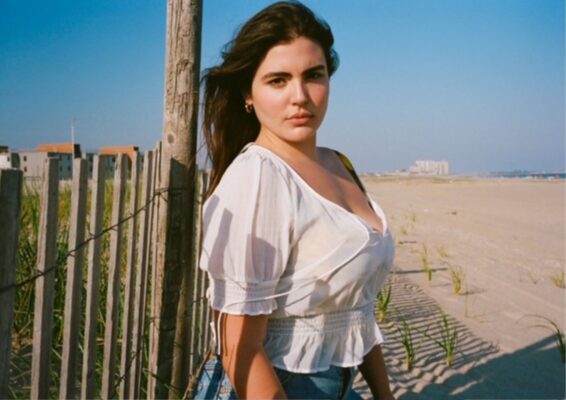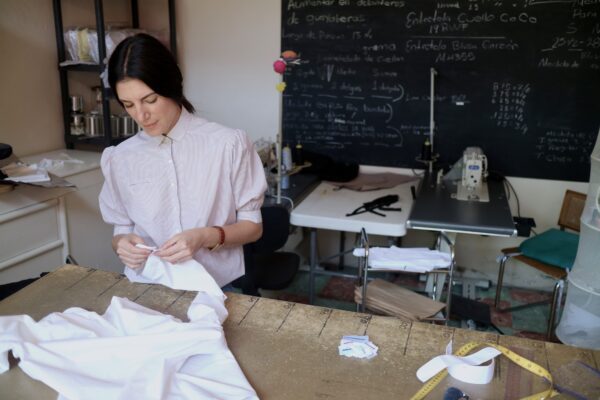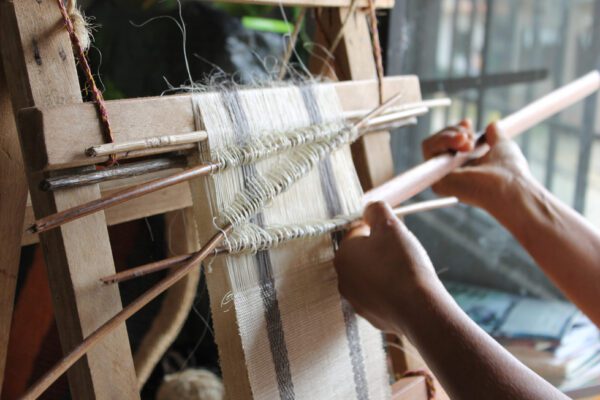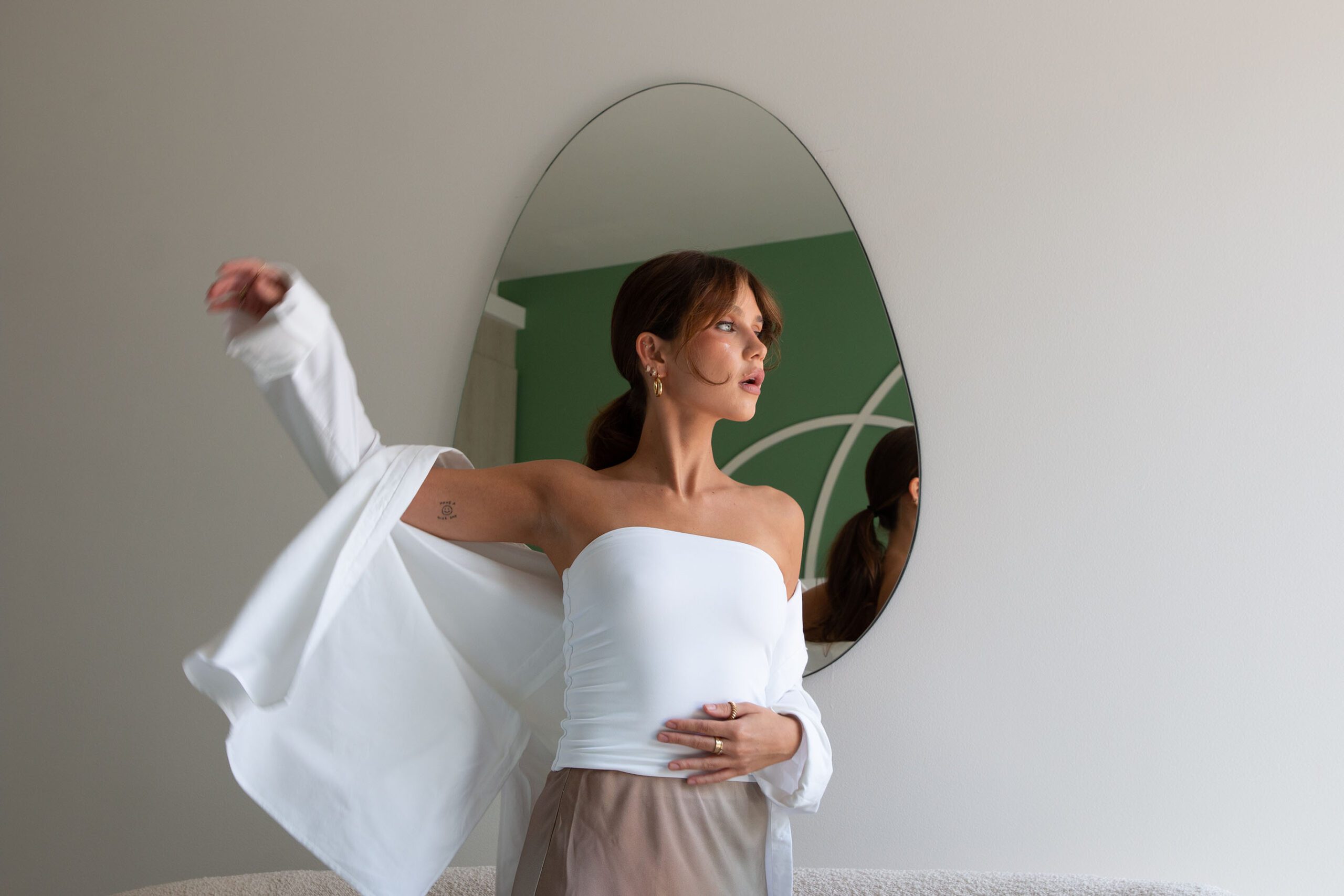
COFFEE WITH
DANI G. SHULZ: “LIVING IN THE PRESENT IS MY SUPERPOWER”
Name: Daniela G. Schulz
Profession: Journalist and Entrepreneur
Nationality: Ecuadorian
Zodiac sign: Cancer
Instagram: @danigschulz
LATINNESS: Let’s start from the beginning. Where did you grow up?
DANI: I was born in Venezuela. My mom is Chilean and my dad is Spanish. They moved at a time when the country was booming. Many Europeans ended up there, as well as Chileans and Argentineans, because those countries were not doing well at the time.
They met in Venezuela, and then, I was born. We lived there until I was seven, and then moved to Ecuador, where I live now. However, I lived abroad for 11 years because I settled in the United States, and later spent time in Madrid and Panama.
All this has resulted in a heavy identity crisis, but I keep a part of everything and that’s what makes me who I am.
LATINNESS: A true Latin American. When people ask where you’re from, what do you say?
DANI: I don’t say the whole story because I don’t think people are interested in that. I do mention Ecuador though, because I’ve lived here since I was seven years old– my parents are still here, my sisters, as well. All my childhood friends are in this country. However, I don’t necessarily feel very Ecuadorian. I’m different from the people around me, but saying that I am is the easiest.
LATINNESS: When you started your career in Panama, it wasn’t necessarily a city that launched creatives. How do you feel your time there influenced your process?
DANI: Very much. In fact, in my case, Panama changed everything.
Before moving here, I was in Madrid working as a Sports Journalist. I specialized in European football and received a Master’s degree in this area of journalism.
When I arrived in Panama, I realized that soccer wasn’t a thing. Basically, I arrived the year the country’s team entered the World Cup for the first time. I worked for a couple of months at a sports television channel called Cable Onda Sports in Panama City. I quickly realized that there was a ceiling and I could only grow so much.
Panama was super transformative because it made me look for things outside of what I always thought I’d do with my life. That’s where social media came into the picture. It was a place where I had to get very creative and ask myself which path I wanted to take.
I spent all this time studying sports and getting my Master’s degree, and then later working in a sports newspaper in Madrid. Then I arrived in Panama and said: “Ok, all of that is out the window. It’s simply not going to happen here, and well I’m here now.”
That’s why I started with social media. In fact, I’d answer your question by saying the opposite: for me it was a very creative place.
LATINNESS: And what about Ecuador, what role has it played in your current phase?
DANI: Returning to Ecuador was very important for me because the time came to plant my roots again. For 11 years I was very focused on my wings, so to speak. I was moving frequently and experiencing different things. I lived away from my family for a long time.
This return allowed me to reconnect with people in my life with whom, perhaps, I hadn’t developed a very strong bond. It’s been really nice having my parents and lifelong friends close as support because I live a very hectic life with travel almost every month.
Returning to Ecuador gave me a sense of calm and tranquility. I have my house and my dog, and my family lives nearby.
In terms of creativity, usually people think about how it can be expanded and where to move to achieve it. But sometimes we forget that our roots are important, as well as returning to the place where you came from and connecting with those people who were transcendental in the early years of your life. This has helped me with my creativity, just by having a very safe space to continue growing.
LATINNESS: Over the past couple of years you’ve experienced moments of vulnerability such as moving and divorce. How has this strengthened you and contributed to your success and this search for creativity?
DANI: Over time I’ve realized that my authenticity and living in the present is my superpower. In fact, my community started to grow right when I was going through a divorce. At first, I hid it, simply for legal reasons. I couldn’t talk about it, but once I got over it, I started to open up.
I understood that I had many limiting beliefs about the subject. That if I was vulnerable, people wouldn’t take me seriously. And that is important to me, because my seriousness does influence my sales a lot and how much people are willing to pay for my services, my courses, etc.
I also believed that married women were given more attention than divorced women– that’s why I hid my situation for a long time. We forget that people can surprise us a lot.
So I made a YouTube video talking about my divorce and my decision to move back to Ecuador. The response was so beautiful. The best responses were from women who had been through it, or who were considering it and didn’t know how to take the first step.
I developed a much deeper connection with my fans after that. Now it’s something that goes much deeper than the surface, especially today with the podcast, in which we talk about topics such as shame, comparison and impostor syndrome. All the feelings that I’ve felt, I try to communicate in a way that shows that I’m not immune, but I have tools to work with.
This has created a very powerful connection with the people who follow me and allowed me to transcend the profile of a cool girl who dresses well.

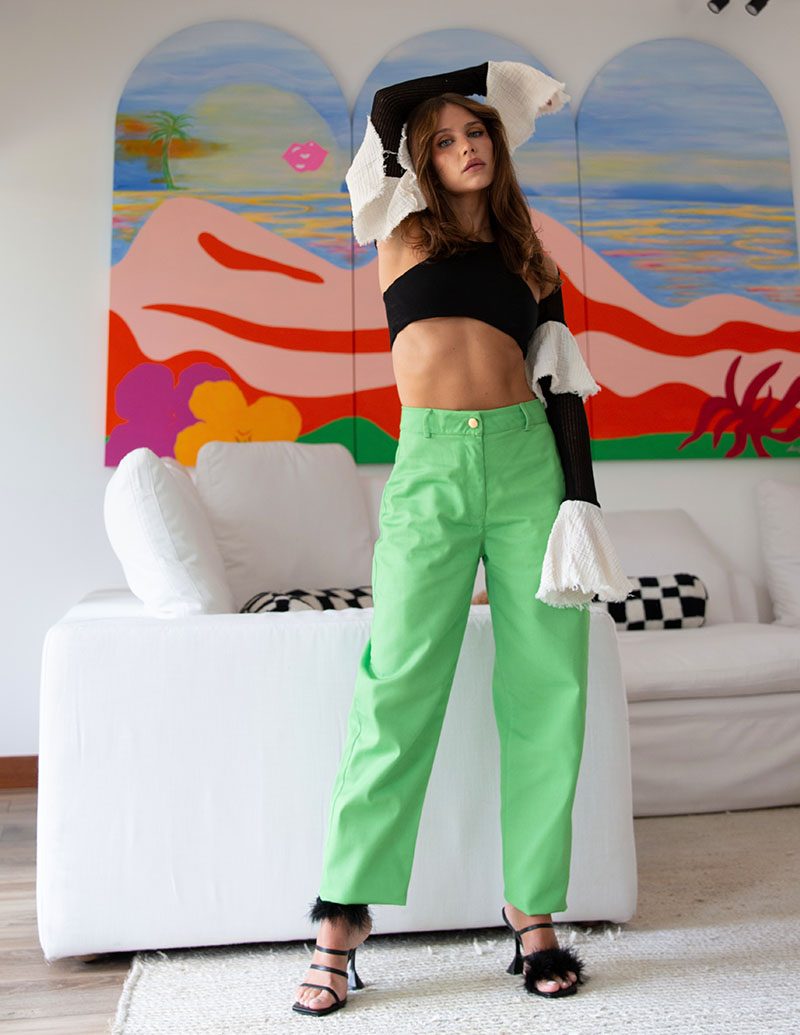
LATINNESS: On the topic of your podcast Viene y Va con Dani G. Schulz, it’s been very successful. What prompted you to start it?
DANI: I’m a journalist by profession and I worked a lot in voiceover and copywriting. More than anything, I wanted a platform that wasn’t about me.
There was a time when I felt that everything I had was related to the way I saw myself and presented myself. The podcast is a platform where people don’t see me; they simply listen to me, to my thoughts, to my learning.
It’s been super powerful to realize that people are interested in what I say, and it’s not just about my physique, nor the clothes I wear and what I have. Just my brain and what it wants to communicate.
It was very healing to understand that they’re there not only because I look a certain way or because I fall into a stereotype imposed by society, but also because of my voice and what I express.
On the other hand, I’ve felt like a foreigner in many places and moments of my life. I also think the podcast was born out of this desire to accompany people who perhaps feel lonely and help them deal with issues that sometimes we don’t discuss with our friends, such as body image, depression and impostor syndrome.
I wanted to create a space where it doesn’t matter who you are or what you look like. Here we’re going to talk about these things and everything is valid. It’s valid that you feel magnificent, regal and powerful, but also that you compare yourself and experience self-doubt. Both things coexist. We must normalize it and talk about it so that it becomes a safe place.
LATINNESS: Regarding being a foreigner, we’ve spoken with other Latinos living abroad who’ve found connection to their culture through creativity. What makes you feel at home wherever you are?
DANI: The roots that I mentioned before. Those of us who are Latin Americans feel it in our blood and in our hearts, and there’s something inexplicable and intangible that unites us. I felt this first when I went to college in the United States. Just by meeting other Latin Americans I understood that we’ve been raised in very similar ways and have similar values.
What’s also kept me close to my roots as a foreigner is listening to podcasts, finding a place that sells arepas or where they serve a good Cuba Libre or tequeños in whatever city I’m in, bumping into other Latinos, listening to the music I heard as a child…
There will always be Latin Americans or foreigners everywhere you go. Your best bet is to try to find that community and allow yourself to enjoy the simple pleasures of life that reconnect you to your latinness.
LATINNESS: What did you dream of being when you were little?
DANI: I always wanted to be on TV, like my mom. In fact, she instilled it in me.
I was the typical girl who at family dinner would stop to dance, sing or say something. I liked being the center of attention, even though it made me feel guilty.
As a teenager I’d hear that little voice saying: “don’t call too much attention”, “don’t always try to be the center of attention”. But I think there are people to whom this comes very naturally, and it’s not a bad thing. Many times you want attention because you have important things to say and you know you can share something that can help a lot of people.
My mom always insisted: “You’re very good at communicating; study journalism.” She’d tell me this all the time– she was a full stage mom. Today I’m very thankful to her because I can now do it without shame.
The other day, a friend was asking me on her podcast: “How have you grown so fast? How has it been for your psyche and for your nervous system to achieve it in such a short time? And I replied: “Honestly, I feel like I was made for this and it’s thanks to my mom. She always instilled in me: ‘You have something valuable to say; you have something to share. Share it!’” Many people criticized me for saying that on the podcast, but to not say it would simply be false modesty. I think that denying those parts of yourself that come so naturally to you is false humility, the kind that they put into women, especially in Latin America. A “stay small”, “don’t take up too much space”, “don’t raise your voice too high”.
We have to change that way of thinking, especially when it comes to women. To believe that you can be the next president or the next politician. I think we have to feed that desire to want to say something important, to be someone important. We shouldn’t feel ashamed of wanting that, which often happens with girls, or at least it did when I was little.
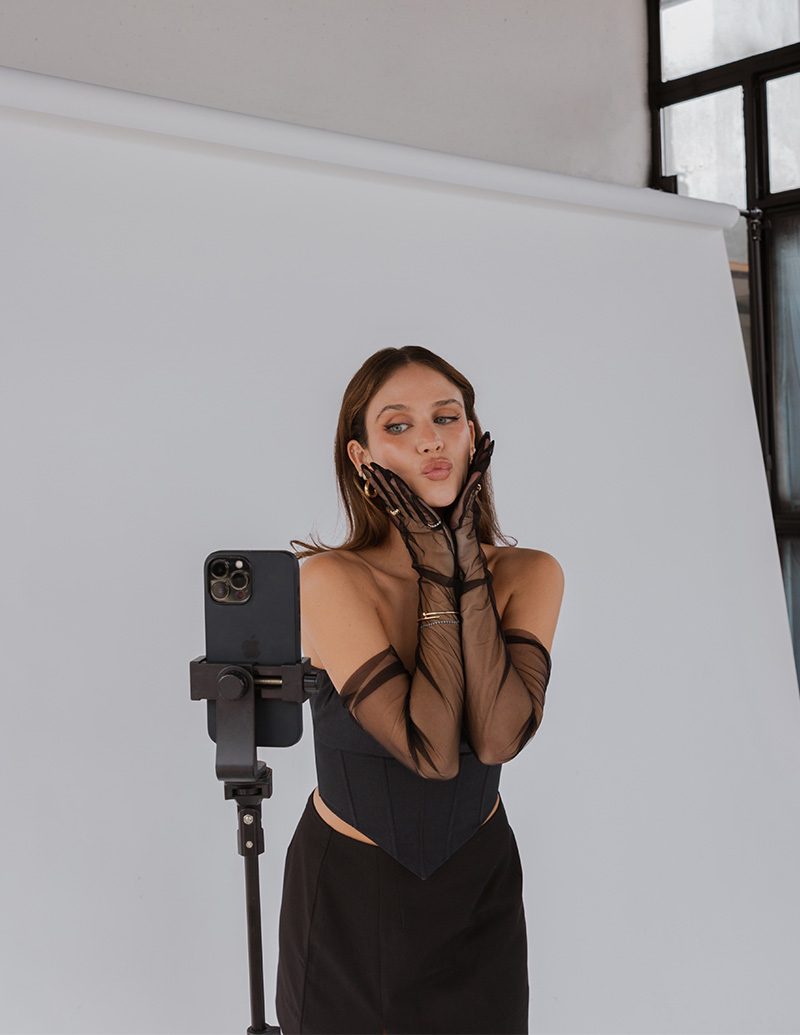
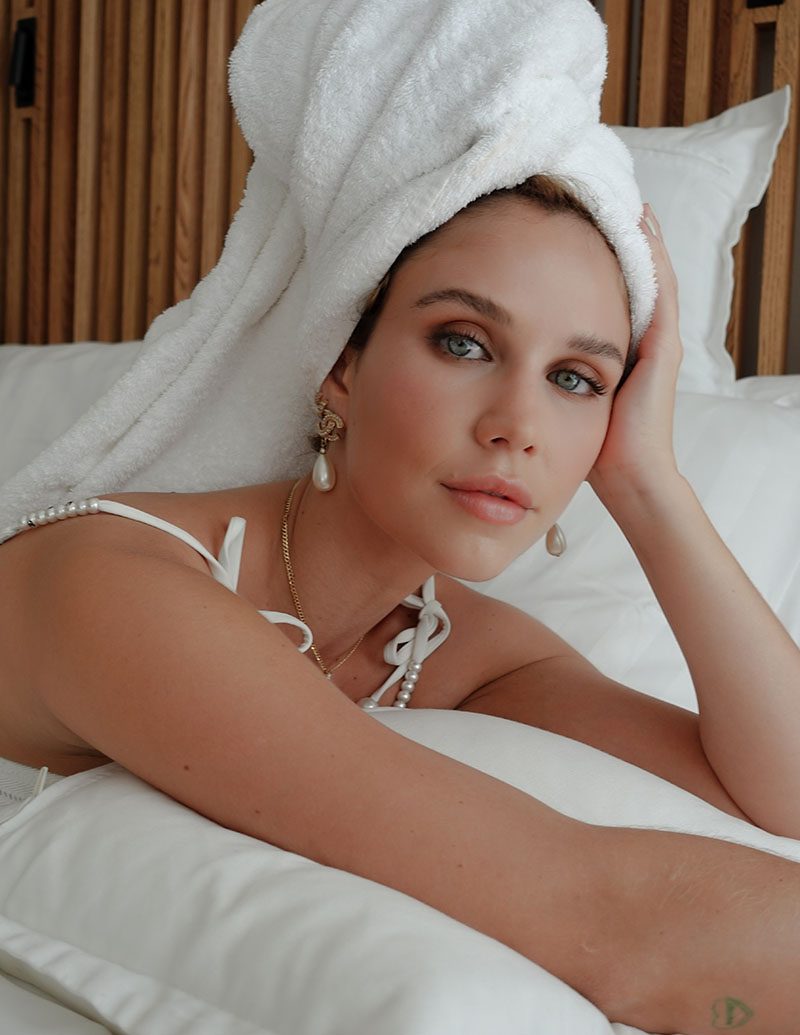
LATINNESS: Your growth on social media has been exponential. In just three years you grew from 10K followers to almost 350K today. What’s the secret?
DANI: Join one of my courses (laughs). My secret isn’t so secret because I don’t think there’s a mysterious formula… You must create it.
The first thing is that you have to stop thinking so much about your weaknesses. And I work on this a lot with my students: don’t think you’re bad at talking on camera or communicating, don’t focus on that. Channel what you’re good at. Are you super good at designing things? Are you good at generating concepts? You have to find what you’re good at.
Now, you’re not always going to want to do what you’re good at. Think of a Venn diagram where you have three circles. One is what you’re passionate about; in another, what you like, and in the third, what will generate money. Where these three circles meet is where the “ray” is, as I like to call it. That’s what you really want to dedicate yourself to on social media.
It’s about finding things that come easily to you, what you like to do and then what you can monetize. To grow on social media these days, it’s no longer enough to post a nice photo or dress cool. You have to say something important that’ll help people or teach them in some way.
Also, I’ve gotten into platforms that give visibility, and Instagram is no longer one of them because only the people who follow you will see you. For example, on Pinterest, YouTube and TikTok, if you make content and it does well, the algorithm will show it to other people. I’d start there, I’d open a TikTok account now and another on YouTube.
LATINNESS: There’s a lot of noise nowadays on social media. What sets you apart?
DANI: I think what sets me apart is that I take time to reconnect with myself. I’m not a creator who’s constantly watching what other creators are doing. I’m not a creator that’s constantly consuming social networks although that’s what many creators do. They go on TikTok to see what’s trending and think, “How do I get into the trend? How can I get more people to see me?”
I believe my growth has come from taking my time to reconnect with my inner power, with my inner self. All these tools that I use, like journaling and meditation, manifestation, visualization exercises, it’s really what allows me to create good content and have confidence in myself.
Good content doesn’t come from just following trends and doing what worked for others because that’s already been done. The only way to innovate and create new things is to reconnect with yourself and give yourself the opportunity to be inspired.
I’m fortunate that my job allows me to travel a lot, which in turn inspires me to generate new concepts. I’d tell you that if you’re trying to stand out, do not spend a lot of time consuming social media because then you’ll do the same as everyone else.
Truly, the content comes from you, from how honest you are with yourself, what things you want to communicate and how you’re using the tools that are literally in your hands to stand out above all the noise that’s out there.
LATINNESS: With so much public exposure, how do you take care of your mental health?
DANI: A psychologist. I highly recommend it. I see him once a week. I also stay active, which has helped my transformation over the years. Going for a walk, listening to a podcast or a song I like, playing with my dog, meditation and journaling every day. This changed my life.
That’s the trifecta: psychologist, if possible (because I know that it’s not an option for everyone), journaling and walking without noise and without looking at your cell phone, just listening to something you like.
LATINNESS: You’re a role model for many young people, which comes with significant responsibility. What advice do you have for the people who read us or who follow you?
DANI: I really do feel that responsibility, especially since very young girls follow me. A lot are still minors, so I always try to speak honestly. If you’re young and you’re listening to me, you might have this very idolized image of me.
LATINNESS: People have a tendency to idolize…
DANI: Exactly. That’s why I always keep in mind to be open about things that didn’t go well and the mistakes I made. To be honest about times I failed myself or a friend or a family member.
I share many of these things on the podcast so people don’t feel like I’m a perfect role model, because I’m not. I’m human and I make mistakes, and I’ll keep making them. Honesty has been super important.
Now, when there are people under the age of 18 who join my courses, I always speak with the parents to let them know about their child’s interest in what I’m teaching.
It also happens to me offline. For example, I’ll go to weddings where mothers approach me and say: “My daughter is 13 years old, she loves your podcast and all the content you post.” I always ask them the same question: “As a mother does it give you peace of mind that she follows me?” They’ve all said yes, which gives me a lot of confidence.
LATINNESS: Do you keep your content PG-13 because of this?
DANI: Yes, absolutely. On the podcast, where I talk about more adult topics like sex or mental health, I always give a disclaimer first. This happens mainly when I deal with topics about mental health.
I also give a trigger warning to people who may be sensitive about some topics and not ready to listen to what I have to say on the podcast. So yes, I feel a huge responsibility, and I think, whether you have one follower or hundreds of thousands, it’s something you have to keep in mind.
You can’t be irresponsible on social media because you don’t know what ears it’s going to fall on and how it may affect that person’s life.
LATINNESS: Act as a positive influence.
DANI: I think the best way to do that is with honesty. To get off that pedestal where people might have you, because you’re not there. What’s the difference between a listener and me? That I have followers and a platform, but that doesn’t make me more or less.
Being honest and admitting when you’ve made a mistake and things haven’t worked out for you is super important so that people get it out of their head that this person is perfect. Nobody is.
LATINNESS: There are many opinions about influencers today. What would you say to someone who doesn’t take your job seriously?
DANI: Well I would say that being an influencer is not a career. It’s just someone who has influence over a group. You’d be surprised how many people call themselves influencers that don’t really have influence.
To someone who doesn’t believe in this career I would answer: you’re right. I believe that the only way to take this career seriously is when you’re thinking three, five or ten years ahead, because we don’t know how long this is going to last. So how can we secure our future? And how can we ensure that we’ll remain relevant?
The way to achieve that is to provide tools to other people, either to improve their life or to learn something new. The influencers who are making a difference are the ones who go beyond that pretty photo or selling you a shirt.
LATINNESS: So how do you see Dani Schulz in ten years?
DANI: I love thinking about the future. I imagine myself working a lot less. I’m riding the waves now and trying to get the most out of this moment. I’m very fortunate with what’s happening to me. I also envision myself contributing more to my community in ways that aren’t necessarily focused on social media.
I see myself with many dogs and doing what I’m passionate about, something that I think changes over the years. I just hope that, in a decade, when I sit down and ask myself, “Am I doing something I’m passionate about and that really matters?” the answer will be “yes.”
Now it is, but I don’t know if what I’m doing in ten years is going to motivate and excite me as much as it is today. I want to continue being a communicator and I hope to have a platform to share my thoughts and, more importantly, my lessons.
Images by Daniel Cornejo, courtesy of Dani G. Schulz.

